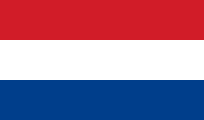Wetenschappelijk onderzoek naar genetische aanleg op afstotingsverschijnselen
Samenvatting van het wetenschappelijk artikel over de genetische aanleg op afstotingsverschijnselen.
Abstract
Even though manufacturers claim that the dermal fillers are nontoxic and nonimmunogenic, adverse events may occur. Clinically and histologically, most of the late onset adverse events present as an inflammatory response. To assess whether HLA polymorphisms are associated with late-onset inflammatory adverse events related to dermal fillers. A total of 211 patients were included, of whom 129 experienced late-onset inflammatory adverse events to different fillers (Inflammation group) and 82 who did not (Reference group). Patients completed a standardized questionnaire and provided a blood sample or oral swap for HLA testing. The study population consisted of 188 (89%) women and 23 (11%) men. The two study groups were similar in the distributions of filler type, location of injecting, allergy, autoimmune disease, gender, age, ethnicity, and smoking status. Of the 211 patients in the sample, 25 had the combination of HLA subtype-B*08 and HLA subtype-DRB1*03. This was 16.3% of the inflammatory group and 4.9% of the reference group. This combination of HLA subtypes was associated with an almost 4-fold increase in the odds of developing immune mediated adverse events (odds ratio = 3.79, 95% CI 1.25-11.48). Genetic polymorphisms such as HLA combinations may identify patients at risk of developing late onset immune mediated adverse events to dermal fillers.
Keywords: HLA; adverse reaction; cosmetic dermatology; dermal filler; haplotypes; immunogenetics; late-onset reaction.





